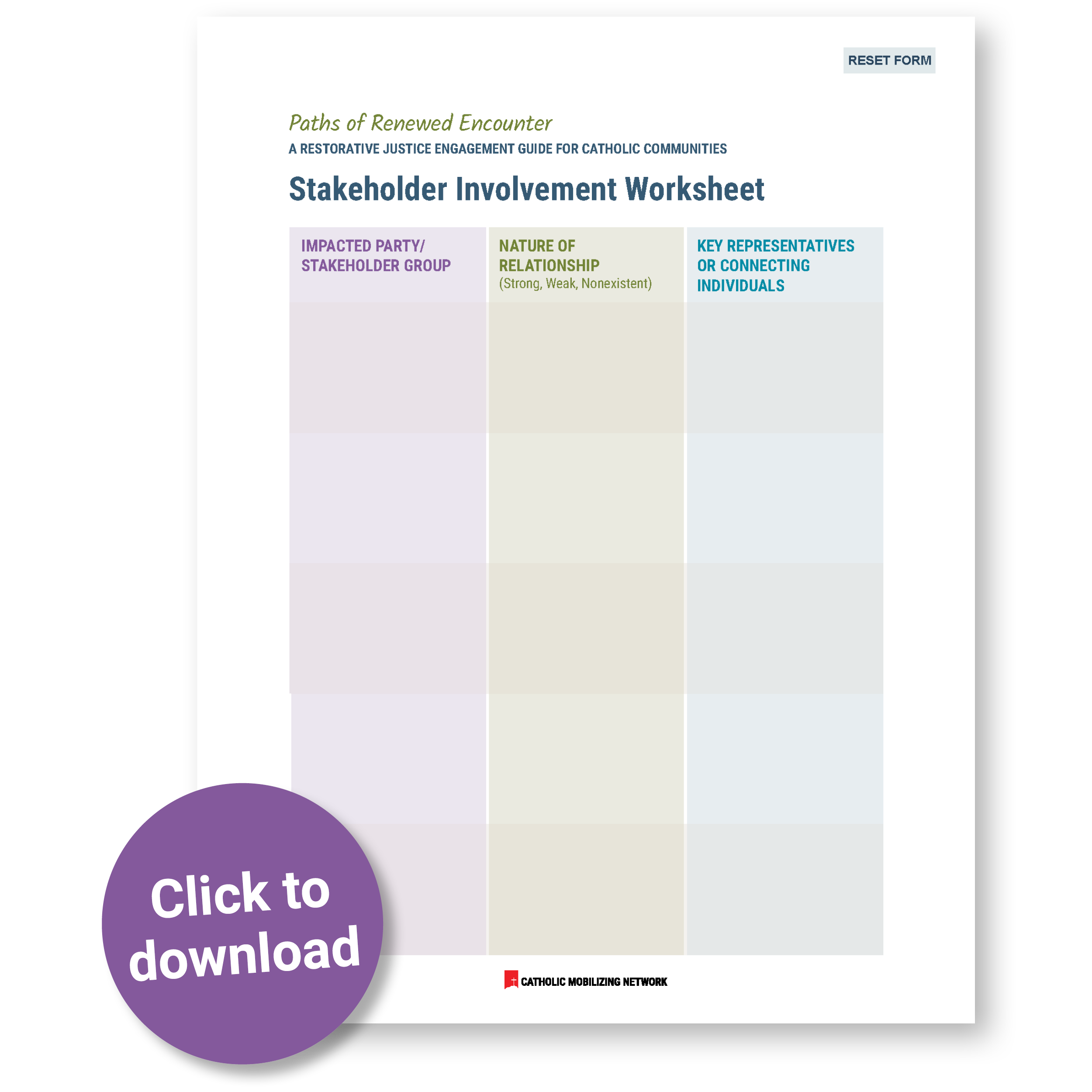The question “Whose obligations are these?” beckons consideration of the CST principle of Rights and Responsibilities.
Like Catholic social teaching, restorative justice recognizes that rights and responsibilities are interwoven and asks, “Whose obligations are these?”
We all have basic rights to life and decency; living justly in community requires being accountable for how our choices and actions affect other people.
From this perspective, accountability can take many different forms: taking responsibility, asking for forgiveness, returning or replacing material items, making a commitment to changing behavior, etc.
In a restorative process, ways of making amends can be mutually determined by those involved, rather than solely imposed by the criminal legal system.
Ministry Resource Assessment
As ministry groups, we are a part of — and therefore have responsibilities to — our communities. In the spirit of responsibility, blessings of time, talent, and treasure are meant to be shared and stewarded.
As you consider your own obligations, it is wise to take stock of the resources or capacity that your ministry may have to offer, as well as what gaps may exist. Some examples may include:
-
An existing/ready volunteer base.
-
Experience or training in restorative practices.
-
Access to space or facilities.
-
Trusted relationships with community leaders or policymakers.
-
Collaborations with community support services/charitable ministries.
-
Monetary funds.
Reflection Questions
-
What are our existing resources, infrastructure, or people power and how are we prepared to steward them?
-
What additional knowledge, skills, or resources are needed and how will we connect with them?
-
How will we be prepared to show up when called upon?
Stakeholder Involvement
Beyond those directly impacted and your core team, there are likely many others who are indirectly impacted by or have influence over the response.
This includes those who are currently perpetuating existing structures of retribution or harm.
Each invitation to encounter and collaborate with these stakeholders is an opportunity for relationship building and conversion toward more loving, compassionate, and merciful responses to harm.
Worksheet:
This worksheet may help your group organize ideas of who to connect with and how.
Reflection Questions
-
What does partnership look like for us? And what is the role of our ministry once partnerships are established?
-
What existing efforts may already be taking place locally and by whom? Or who may be natural allies?
-
What stakeholders are currently perpetuating existing structures of retributive justice? How can our ministry play a role in inviting these entities to consider new ways of doing things?
-
Whose approval or support is needed in order to move forward? How will we share our plans with them?


